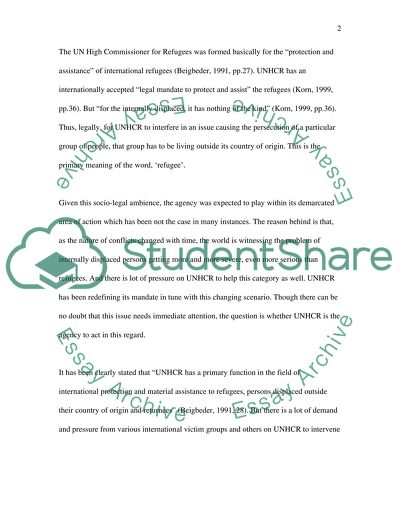Cite this document
(“In-country activities by UNHCR detract from its primary mandate : Essay”, n.d.)
In-country activities by UNHCR detract from its primary mandate : Essay. Retrieved from https://studentshare.org/miscellaneous/1570701-in-country-activities-by-unhcr-detract-from-its-primary-mandate-discuss
In-country activities by UNHCR detract from its primary mandate : Essay. Retrieved from https://studentshare.org/miscellaneous/1570701-in-country-activities-by-unhcr-detract-from-its-primary-mandate-discuss
(In-Country Activities by UNHCR Detract from Its Primary Mandate : Essay)
In-Country Activities by UNHCR Detract from Its Primary Mandate : Essay. https://studentshare.org/miscellaneous/1570701-in-country-activities-by-unhcr-detract-from-its-primary-mandate-discuss.
In-Country Activities by UNHCR Detract from Its Primary Mandate : Essay. https://studentshare.org/miscellaneous/1570701-in-country-activities-by-unhcr-detract-from-its-primary-mandate-discuss.
“In-Country Activities by UNHCR Detract from Its Primary Mandate : Essay”, n.d. https://studentshare.org/miscellaneous/1570701-in-country-activities-by-unhcr-detract-from-its-primary-mandate-discuss.


